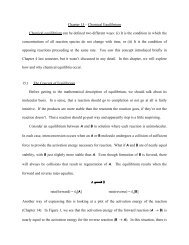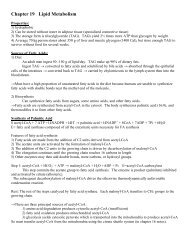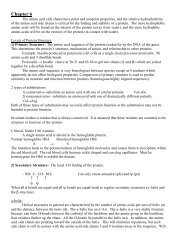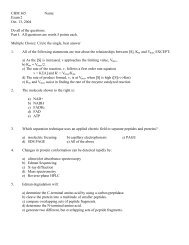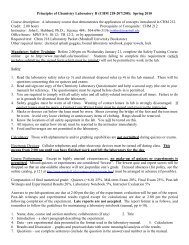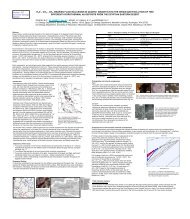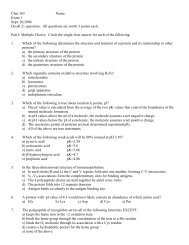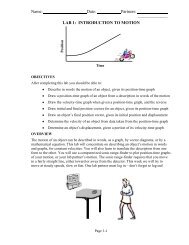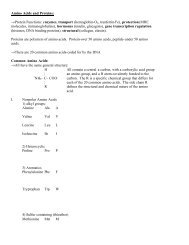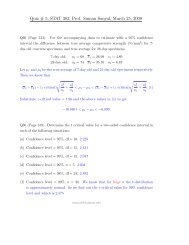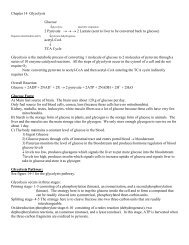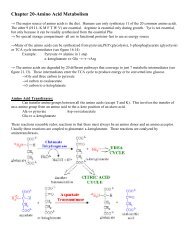THE DHAMMAPADA: THE WAY OF THE BUDDHA, VOL. 9-12 The ...
THE DHAMMAPADA: THE WAY OF THE BUDDHA, VOL. 9-12 The ...
THE DHAMMAPADA: THE WAY OF THE BUDDHA, VOL. 9-12 The ...
You also want an ePaper? Increase the reach of your titles
YUMPU automatically turns print PDFs into web optimized ePapers that Google loves.
<strong>THE</strong> <strong>DHAMMAPADA</strong>: <strong>THE</strong> <strong>WAY</strong> <strong>OF</strong> <strong>THE</strong> <strong>BUDDHA</strong>, <strong>VOL</strong>. 9-<strong>12</strong> 239<br />
<strong>The</strong>n you need not do it; you have to do it only in the beginning. Once you have learned the knack of it, it<br />
remains with you; you need not do it. <strong>The</strong>n whatsoever you are doing, it is there. It becomes a backdrop to<br />
your life, a background to your life. You are walking, but you walk meditatively. You are eating, but you eat<br />
meditatively. You are sleeping, but you sleep meditatively. Remember, even the quality of sleep of a meditator<br />
is totally different from the quality of the sleep of a non-meditator. Everything becomes different because a new<br />
factor has entered which changes the whole gestalt.<br />
Vipassana simply means watching your breath, looking at your breath. It is not like yoga pranayam: it is not<br />
changing your breath to a certain rhythm deep breathing, fast breathing. No, it does not change your breathing<br />
at all; it has nothing to do with the breathing. Breathing has only to be used as a device to watch because it is a<br />
constant phenomenon in you. You can simply watch it, and it is the most subtle phenomenon. If you can watch<br />
your breath then it will be easy for you to watch your thoughts.<br />
One thing immensely great that Buddha contributed was the discovery of the relationship between breath and<br />
thought. He was the first man in the whole history of humanity who made it absolutely clear that breathing<br />
and thinking are deeply related. Breathing is the bodily part of thinking and thinking is the psychological part<br />
of breathing. <strong>The</strong>y are not separate, they are two aspects of the same coin. He is the first man who talks of<br />
bodymind as one unity. He talks for the first time about man as a psychosomatic phenomenon. He does not talk<br />
about body and mind, he talks about bodymind. <strong>The</strong>y are not two, hence no ’and’ is needed to join them. <strong>The</strong>y<br />
are already one bodymind not even a hyphen is needed; bodymind is one phenomenon. And each body process<br />
has its counterpart in your psychology and vice versa.<br />
You can watch it, you can try an experiment. Just stop your breathing for a moment and you will be surprised:<br />
the moment you stop your breathing, your thinking stops. Or you can watch another thing: whenever your<br />
thinking is going too fast your breathing changes. For example, if you are full of sexual lust and your thinking is<br />
getting too hot, your breathing will be different: it will not be rhythmic, it will lose its rhythm. It will be more<br />
chaotic, it will be unrhythmic.<br />
When you are angry your breathing changes because your thinking has changed. When you are loving your<br />
breathing changes because your thinking has changed. When you are peaceful, at ease, at home, relaxed, your<br />
breathing is different. When you are restless, worried, in turmoil, in anguish, your breathing is different. Just by<br />
watching your breath you can know what kind of state is happening in your mind.<br />
Meditators come across a point: when the mind really completely ceases, breathing also ceases. And then<br />
great fear arises don’t be afraid. Many meditators have reported to me, ”We became very much afraid, very<br />
much frightened, because suddenly we became aware that the breathing has stopped.” Naturally, one thinks that<br />
when breathing stops death is close by. It is only a question of moments you are dying. Breathing stops in<br />
death; breathing also stops in deep meditation. Hence deep meditation and death have one thing similar: in both<br />
the breathing stops. <strong>The</strong>refore, if a man knows meditation he has also known death. That’s why the meditator<br />
becomes free of the fear of death: he knows breathing can stop and still he is.<br />
Breathing is not life; life is a far bigger phenomenon. Breathing is only a connection with the body. <strong>The</strong><br />
connection can be cut; that does not mean that life has ended. Life is still there; life does not end just by the<br />
disappearance of breathing.<br />
Buddha says: Watch your breathing; let it be normal, as it is. Sitting silently, watch your breath. <strong>The</strong> sitting<br />
posture will also be helpful; the Buddha posture, the lotus posture, is very helpful. When your spine is erect and<br />
you are sitting in a lotus posture, your legs crossed, your spine is aligned with the gravitational forces, and the<br />
body is at its best relaxed state. Let the spine be erect and the body be loose, hanging on the spine not tense.<br />
<strong>The</strong> body should be loose, relaxed, the spine erect, so gravitation has the least pull on you.<br />
Have you watched it? If you want to go to sleep you have to lie down, for the simple reason that when you are<br />
lying down flat on the ground you are in touch with the gravitational forces at the maximum, because all over the<br />
body the gravitational pull works, it pulls you. You immediately start falling asleep. It is difficult to fall asleep<br />
standing. <strong>The</strong> most difficult posture to fall asleep in is the lotus posture. <strong>The</strong> body is so relaxed there is no need<br />
to fall asleep, and the gravitational forces are at the minimum; hence they cannot pull you downwards; they can’t<br />
make you heavy and dull and lethargic. You are bright, you are full of life. You are more intelligent in the lotus<br />
posture than you can ever be in any other posture. <strong>The</strong> body affects your mind.<br />
Scientists now agree with this: that it is only because a few of the monkeys somehow... they have not been<br />
able to find the reason why and how it happened, and monkeys are monkeys it may have just happened out of<br />
curiosity, a few monkeys tried to stand on two legs and these are the monkeys who became the original men; they<br />
were the originators. That was the greatest innovation; nothing else has been greater than that. A few monkeys<br />
standing erect on their two legs created a great revolution; the revolution happened in the growth of the mind.



